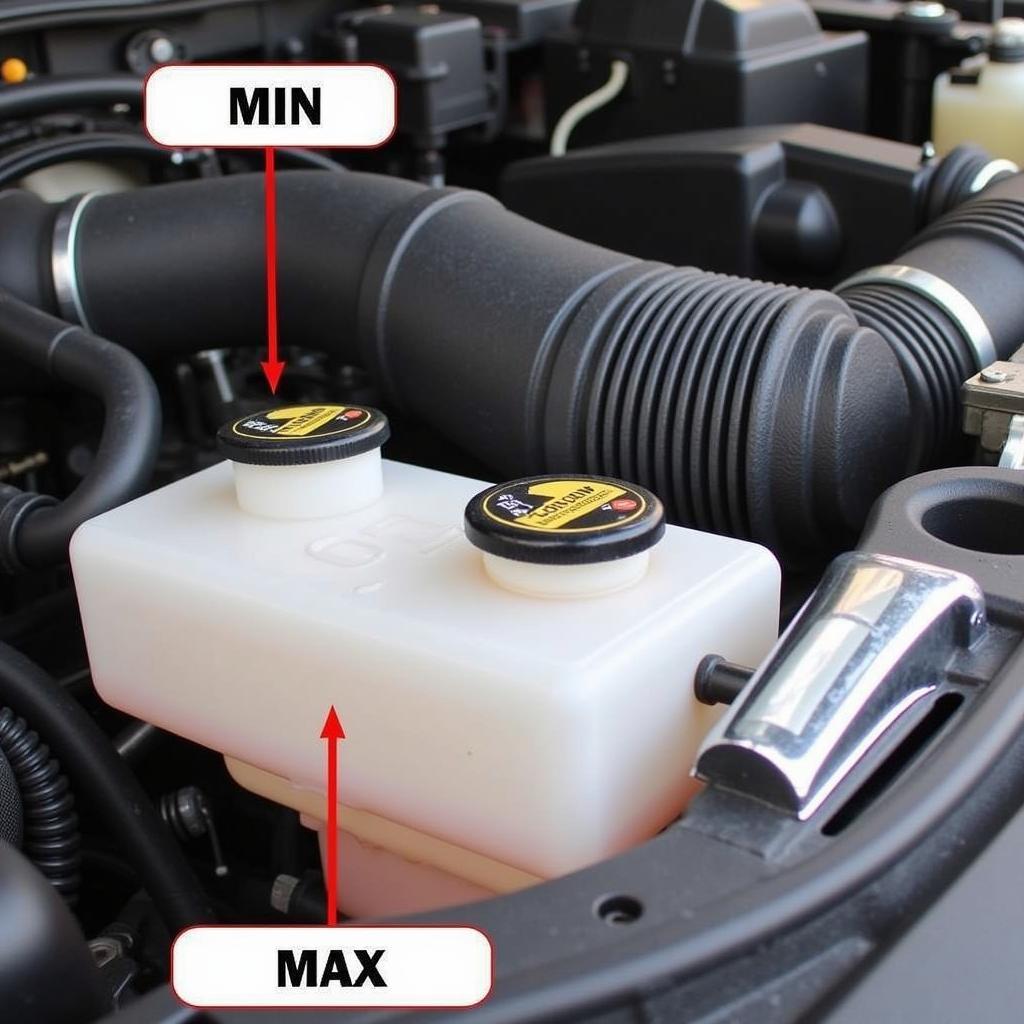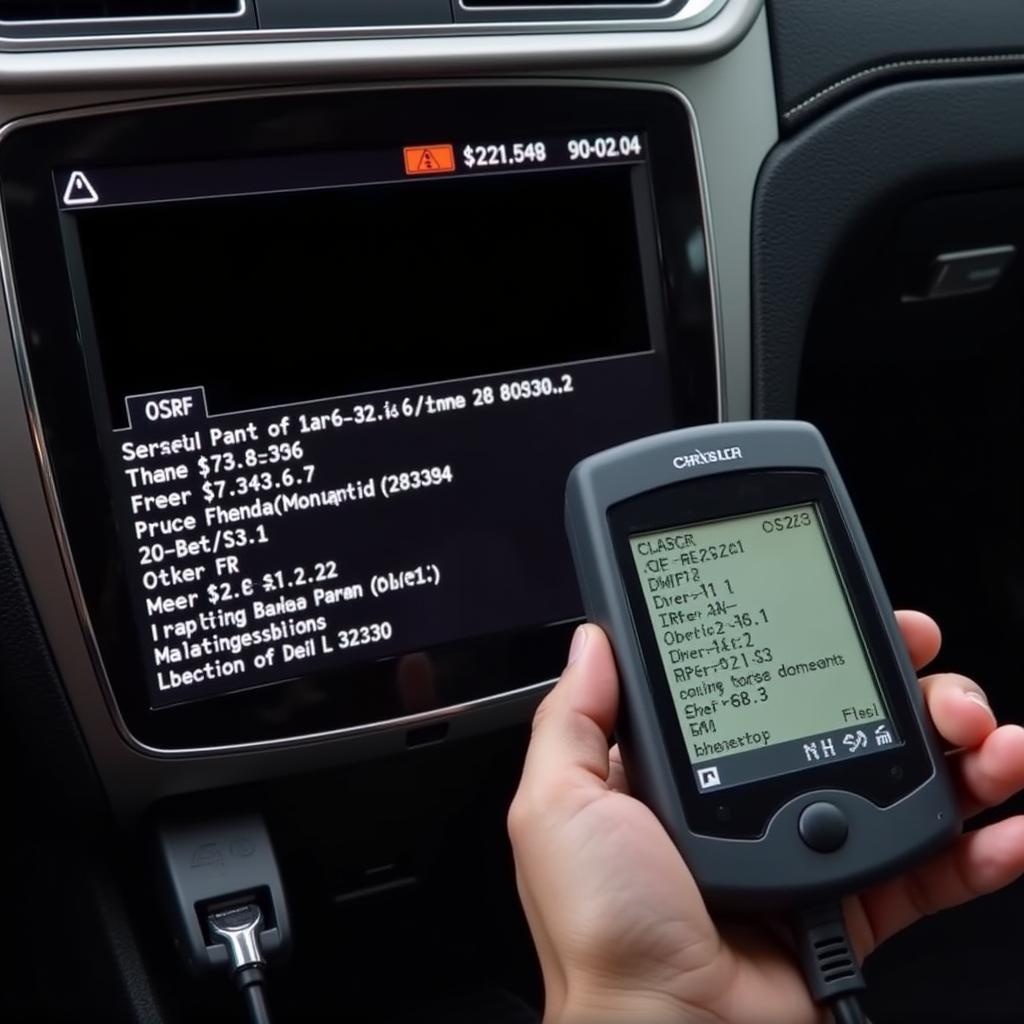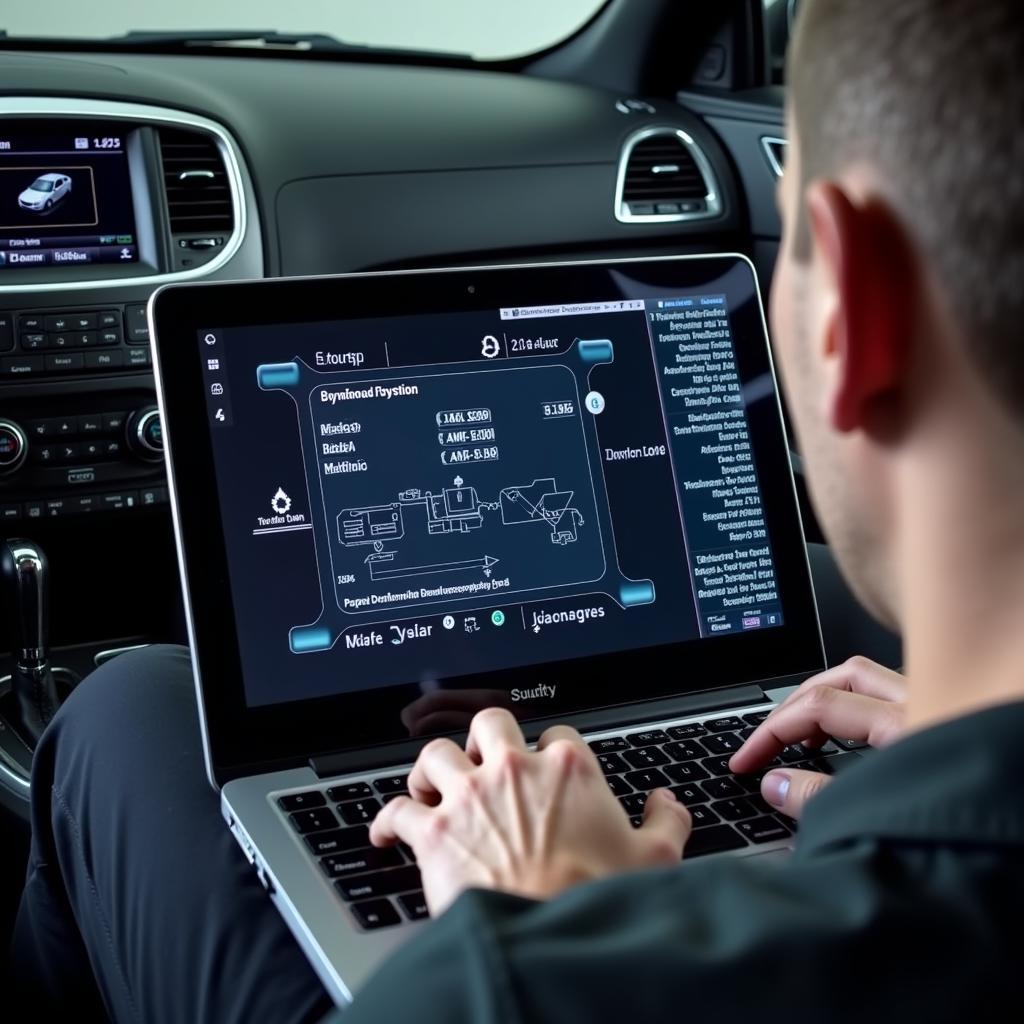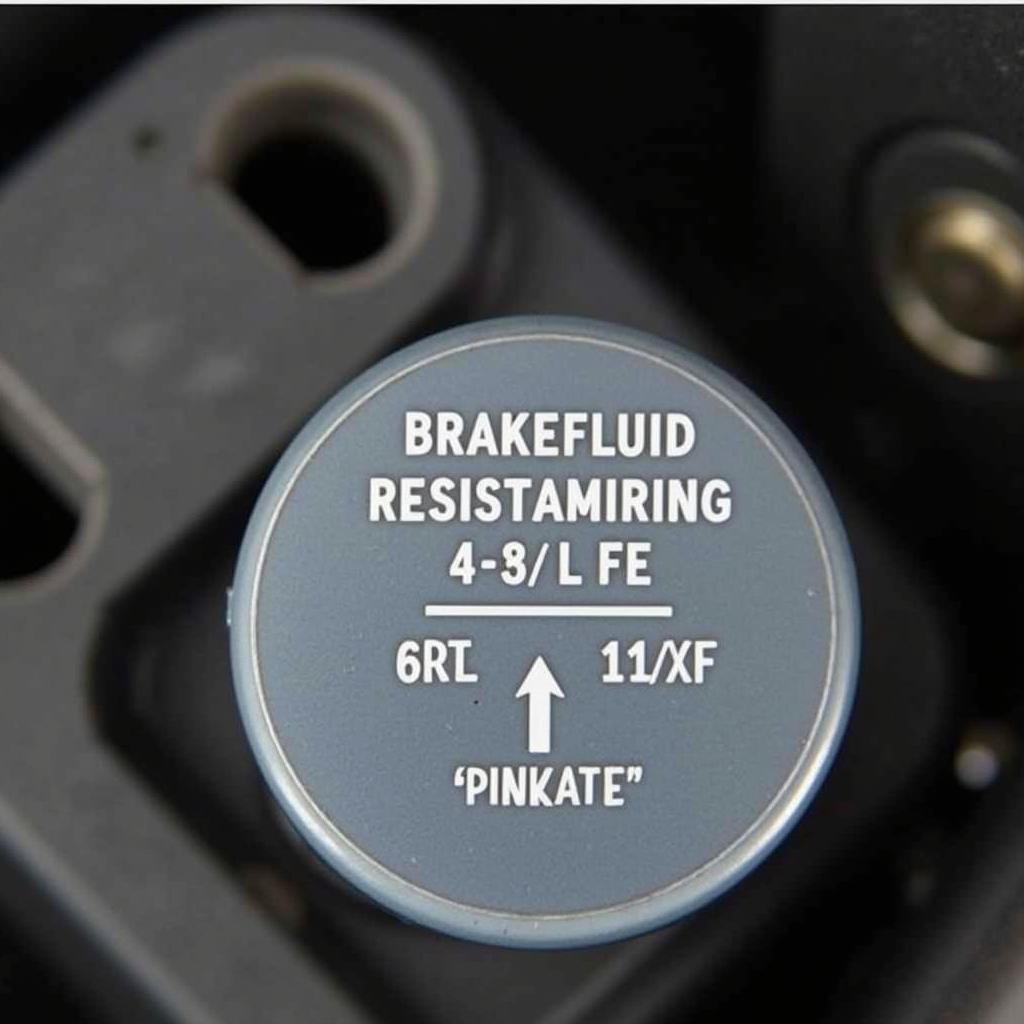A blinking parking brake light on your 2013 Chrysler 300 can be a nagging issue, but it’s often easily resolved. This article will guide you through the common causes of a flashing parking brake light and provide practical solutions to fix the problem, potentially saving you a trip to the mechanic.
Understanding the Blinking Parking Brake Light
The parking brake light isn’t just an indicator for when the brake is engaged. It also serves as a warning light for problems within the braking system. A continuous light usually means the parking brake is on, while a blinking 2013 Chrysler 300 parking brake light often indicates a low brake fluid level, a faulty parking brake sensor, or issues with the ABS system. Identifying the root cause is the first step towards a solution.
Common Causes of a 2013 Chrysler 300 Blinking Parking Brake Light
Several factors can trigger a blinking parking brake light. Here are the most common culprits:
- Low Brake Fluid: This is the most frequent cause. Low brake fluid can significantly reduce braking performance and is a serious safety concern.
- Faulty Parking Brake Sensor: The sensor might be malfunctioning, sending incorrect signals to the dashboard even when the parking brake is disengaged.
- ABS Issues: Problems within the Anti-lock Braking System (ABS), such as a faulty wheel speed sensor, can also trigger the blinking light.
- Worn Brake Pads: Although less common, excessively worn brake pads can sometimes trigger the warning light.
Troubleshooting the Blinking Parking Brake Light
Follow these steps to diagnose the issue:
- Check the Brake Fluid Level: Open the hood and locate the brake fluid reservoir. If the fluid level is below the “MIN” mark, add the correct type of brake fluid until it reaches the “MAX” line.
- Inspect the Parking Brake Lever: Ensure the parking brake lever is fully released. Sometimes, the lever might not be completely disengaged, even if it seems like it is.
- Check for Leaks: Inspect the brake lines and connections for any signs of leakage. Leaking brake fluid is a serious safety hazard and requires immediate attention.
 Checking the Brake Fluid Reservoir in a 2013 Chrysler 300
Checking the Brake Fluid Reservoir in a 2013 Chrysler 300
Advanced Diagnostics and Solutions
If the basic troubleshooting steps don’t resolve the issue, more advanced diagnostics might be needed.
- Scanning for Diagnostic Trouble Codes (DTCs): Using a diagnostic scanner, you can retrieve specific trouble codes related to the braking system, which can pinpoint the problem area.
- Testing the Parking Brake Sensor: A multimeter can be used to test the parking brake sensor for proper operation.
- Inspecting the ABS System: Checking the ABS module, wheel speed sensors, and related wiring can identify problems within the ABS.
 Retrieving Diagnostic Trouble Codes (DTCs) with an OBD-II Scanner on a 2013 Chrysler 300
Retrieving Diagnostic Trouble Codes (DTCs) with an OBD-II Scanner on a 2013 Chrysler 300
“Regular maintenance, including brake inspections and fluid changes, is crucial for preventing brake system problems and ensuring optimal vehicle safety,” advises John Davies, a seasoned automotive electrical engineer specializing in remote diagnostics.
Remote Diagnostics and Programming: A Modern Solution
For complex issues, remote diagnostics and programming can offer a convenient and effective solution. Certified technicians can access your vehicle’s systems remotely, diagnose the problem, and even reprogram certain modules, saving you time and money.
“Remote diagnostics can quickly pinpoint the root cause of a blinking parking brake light, often eliminating the need for a physical inspection,” explains Sarah Miller, a leading expert in automotive software solutions. “This technology allows us to efficiently address various issues, from faulty sensors to software glitches.”
 Remote Diagnostics and Programming for a 2013 Chrysler 300 Parking Brake Light Issue
Remote Diagnostics and Programming for a 2013 Chrysler 300 Parking Brake Light Issue
Conclusion
A 2013 Chrysler 300 blinking parking brake light should never be ignored. By understanding the potential causes and following the troubleshooting steps outlined in this article, you can often resolve the problem yourself. However, for more complex issues, seeking professional assistance or utilizing remote diagnostics and programming can provide efficient and effective solutions. Addressing the problem promptly ensures your safety and prevents further damage to your vehicle’s braking system.
FAQs
- Can I drive my Chrysler 300 with a blinking parking brake light? While you might be able to drive, it’s not recommended. It could indicate a serious issue with your braking system.
- How often should I check my brake fluid? It’s a good idea to check your brake fluid level at least once a month.
- What type of brake fluid does a 2013 Chrysler 300 use? Consult your owner’s manual for the correct brake fluid type.
- How much does it cost to replace a parking brake sensor? The cost varies depending on location and labor rates.
- Can a low battery cause a blinking parking brake light? While unlikely, electrical issues can sometimes affect warning lights. Check your battery voltage.
- What is remote diagnostics and how does it work? Remote diagnostics allows a technician to access your car’s computer system remotely to diagnose problems.
- Is it safe to use remote programming for my Chrysler 300? Yes, when performed by certified professionals, remote programming is safe and effective.

